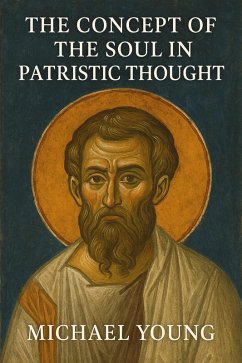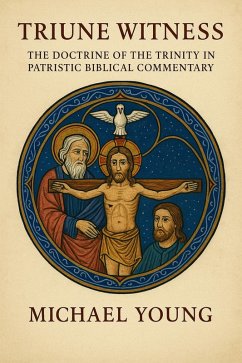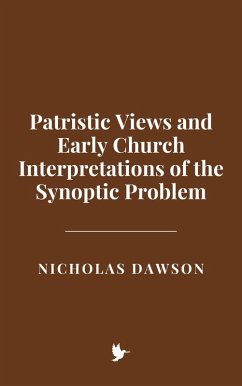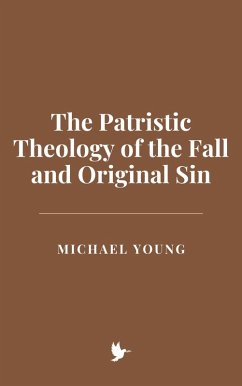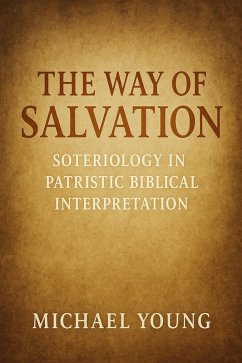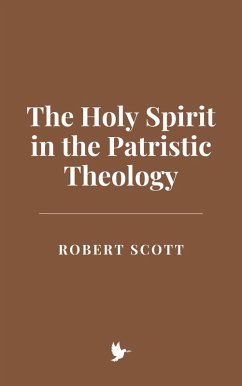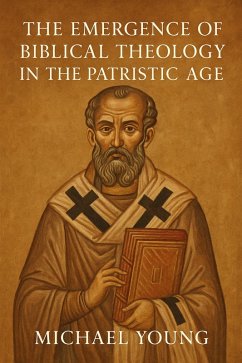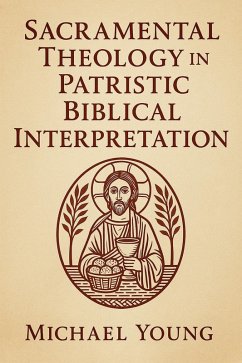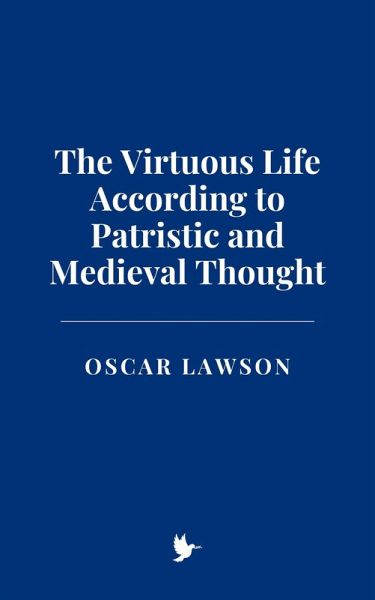
The Virtuous Life According to Patristic and Medieval Thought (eBook, ePUB)

PAYBACK Punkte
0 °P sammeln!
The concept of the virtuous life has been central to ethical thought for millennia, with deep roots extending through both Greco-Roman philosophy and early Christian theology. As Christianity emerged from the crucible of antiquity, it inherited a rich intellectual heritage, including the ethical traditions of Greece and Rome. These traditions, primarily shaped by thinkers such as Plato and Aristotle, emphasized the cultivation of virtue as the highest human pursuit. However, Christian ethics, particularly as developed in the Patristic and Medieval periods, redefined and repurposed these ancien...
The concept of the virtuous life has been central to ethical thought for millennia, with deep roots extending through both Greco-Roman philosophy and early Christian theology. As Christianity emerged from the crucible of antiquity, it inherited a rich intellectual heritage, including the ethical traditions of Greece and Rome. These traditions, primarily shaped by thinkers such as Plato and Aristotle, emphasized the cultivation of virtue as the highest human pursuit. However, Christian ethics, particularly as developed in the Patristic and Medieval periods, redefined and repurposed these ancient ideals in a manner consistent with the doctrine of salvation and divine grace.
In the early centuries of Christian thought, virtue was seen as essential for the soul's journey toward salvation, but this journey was viewed through the lens of divine grace. This was a major departure from the classical concept of virtue, which often focused more on human effort and reason. As the Christian faith spread through the Roman Empire, beginning with the Apostolic Fathers in the 1st and 2nd centuries, Christian thinkers adapted philosophical concepts of virtue, emphasizing the transformation of the soul through God's grace and the imitation of Christ's perfect virtue. Thus, early Christian thinkers, such as Clement of Rome and Ignatius of Antioch, began to build a new ethical framework that was grounded not in human reason alone but in the mysterious workings of God's will. Their writings, though relatively simple compared to later theological works, presented the foundations of Christian ethics, focusing on virtues such as humility, charity, and patience-virtues that would later come to define the Christian moral tradition.
In the early centuries of Christian thought, virtue was seen as essential for the soul's journey toward salvation, but this journey was viewed through the lens of divine grace. This was a major departure from the classical concept of virtue, which often focused more on human effort and reason. As the Christian faith spread through the Roman Empire, beginning with the Apostolic Fathers in the 1st and 2nd centuries, Christian thinkers adapted philosophical concepts of virtue, emphasizing the transformation of the soul through God's grace and the imitation of Christ's perfect virtue. Thus, early Christian thinkers, such as Clement of Rome and Ignatius of Antioch, began to build a new ethical framework that was grounded not in human reason alone but in the mysterious workings of God's will. Their writings, though relatively simple compared to later theological works, presented the foundations of Christian ethics, focusing on virtues such as humility, charity, and patience-virtues that would later come to define the Christian moral tradition.
Dieser Download kann aus rechtlichen Gründen nur mit Rechnungsadresse in A, B, CY, CZ, D, DK, EW, E, FIN, F, GR, H, IRL, I, LT, L, LR, M, NL, PL, P, R, S, SLO, SK ausgeliefert werden.




